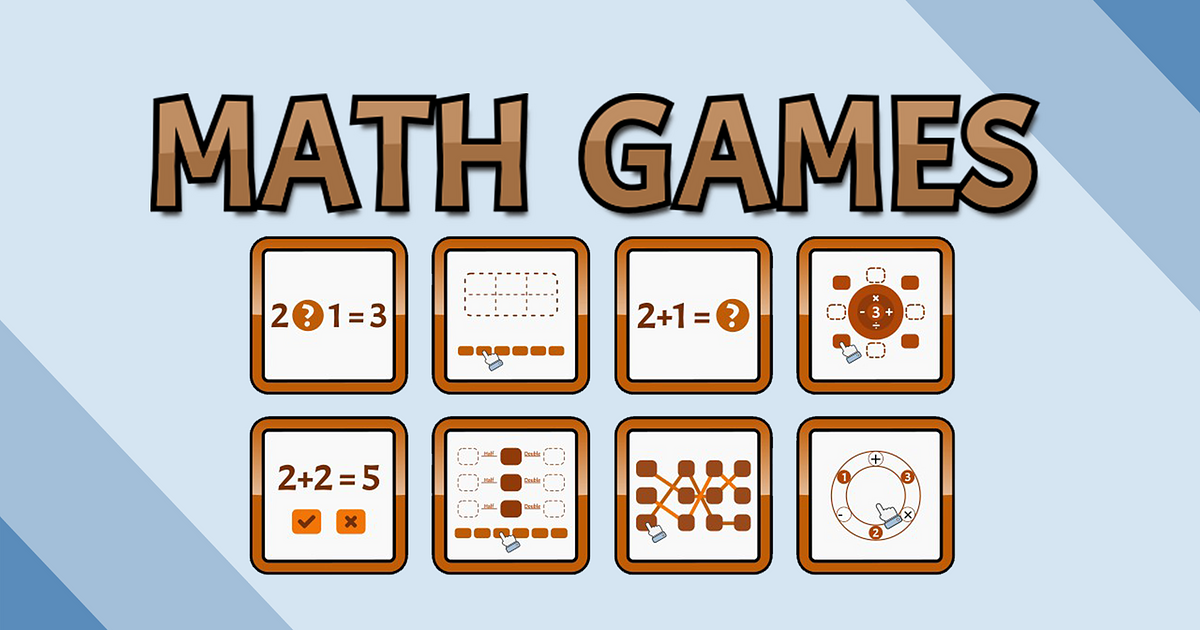Math can often seem daunting to students, but Math Games when approached through games, it becomes an exciting and engaging subject. Math games are an effective way to teach mathematical concepts while keeping learners entertained. They provide a hands-on approach to problem-solving and can be an excellent supplement to traditional teaching methods. This article explores the benefits of math games, different types of games, and how they can be integrated into both classroom settings and at home.
Benefits of Math Games
- Enhanced Engagement: Math games transform abstract concepts into interactive experiences. When students play games, they are more likely to stay engaged and motivated, which can lead to a deeper understanding of mathematical principles.
- Improved Retention: By turning learning into a fun activity, math games help reinforce concepts in a memorable way. Repeated practice through games helps solidify knowledge and improve retention.
- Development of Critical Thinking: Many math games require strategic thinking and problem-solving. These skills are crucial not only for mathematics but also for everyday decision-making and cognitive development.
- Increased Confidence: Games provide a low-pressure environment where students can practice and make mistakes without fear of judgment. This can boost their confidence and willingness to tackle more challenging problems.
- Social Interaction: Many math games are designed for multiple players, encouraging collaboration and communication. This social aspect helps students learn to work together, share strategies, and support each other.
Types of Math Games
- Board Games: Classic board games like “Monopoly” and “Life” incorporate mathematical skills such as counting money and calculating expenses. There are also dedicated math board games like “Sum Swamp” and “Prime Climb” that focus specifically on mathematical concepts.
- Card Games: Card games like “Uno” and “Math War” can be adapted to practice arithmetic operations. For example, Math War involves comparing the sums of two cards, which helps reinforce addition and subtraction skills.
- Puzzle Games: Sudoku and logic puzzles are excellent for developing number sense and problem-solving skills. These puzzles challenge students to think critically and apply mathematical reasoning.
- Online Games: There is a wide range of educational math games available online. Websites like Khan Academy, Prodigy, and Coolmath Games offer interactive exercises that cover various mathematical topics and adapt to different skill levels.
- Physical Games: Activities such as hopscotch with number challenges or math scavenger hunts incorporate physical movement with math practice. These games can be especially engaging for younger students.
Integrating Math Games in Education
- Classroom Integration: Teachers can use math games as a fun break from traditional lessons or as a way to introduce new concepts. Incorporating games into lessons can make abstract ideas more concrete and accessible.
- Homework and Practice: Assigning math games as homework can provide students with additional practice in a less formal setting. This can be particularly effective for reinforcing skills learned in class.
- Family Involvement: Parents can support their children’s learning by playing math games at home. This not only provides additional practice but also creates opportunities for family bonding and learning together.
- Assessment Tool: Teachers can use math games to assess students’ understanding in a more informal and engaging way. Observing students during gameplay can provide insights into their problem-solving strategies and conceptual grasp.
Conclusion
Math games are a powerful tool for making learning math enjoyable and effective. They provide opportunities for engagement, practice, and skill development in a fun and interactive way. By incorporating a variety of games into educational settings and home learning, students can develop a positive attitude toward math and improve their mathematical abilities. Whether through board games, card games, puzzles, online platforms, or physical activities, math games offer a dynamic approach to mastering mathematical concepts and fostering a love for learning.

